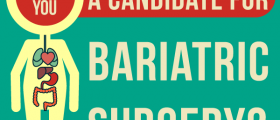
The stomach, as well as any other organ in the human body, can be affected by certain diseases. Watermelon stomach is a name for a condition marked by the appearance of parallel red sores, which occur in the stomach. The medical term for watermelon stomach is gastric antral vascular ectasia, abbreviated GAVE.
The antrum is the end of the stomach cavity. When the blood vessels in the part dilate, the bright red streaks that resemble the watermelon streaks appear. Therefore, this condition is called watermelon stomach. This gastrointestinal disease is not very common and it should be immediately treated in order to avoid the eruption of the dilated blood vessels in the stomach. Otherwise, hemorrhage and excessive blood loss occur.
Symptoms of watermelon stomach
Although this condition may appear in everyone, it is more frequent in women than in men, especially in women above 50 years of age. Watermelon stomach has its characteristic warning signs, which may differ largely from person to person. The most obvious symptom of watermelon stomach is the pain. Furthermore, the people who suffer from gastric antral vascular ectasia may also experience tiredness and fatigue, as well as headaches and migraine. Lack of concentration, loss of appetite and irregular heart rate are also some of the symptoms of watermelon stomach. In many people with this gastrointestinal disease diarrhea, which can be even bloody, shallow breathing may appear along with the already described symptoms.
When the chronic internal bleeding causes the watermelon stomach, several symptoms appear as the result of the heavy blood loss. These symptoms include faintness, confusion, rapid heart rate and heart palpitations. Iron deficiency anemia, as well as gastrointestinal bleeding, is also the potential warning signs of watermelon stomach.
Causes of watermelon stomach
When a person suffers from watermelon stomach, he/she has dilated blood vessels at the end of the stomach. The dilation of these blood vessels can be caused by several medical conditions. In the majority of cases, when people suffer from liver cirrhosis, vasculitis or the inflammation of the blood vessels within the stomach, watermelon stomach develops also. Abdominal injury and Grave’s disease may also lead to the dilation of the blood vessels in the stomach. Furthermore, gastric antral vascular ectasia may be caused by chronic constipation, large bowel obstruction and irritable bowel syndrome. Other potential causes for this rare gastrointestinal disease are scleroderma, collagen vascular diseases, chronic renal failure and portal hypertension.

















Your thoughts on this
Loading...